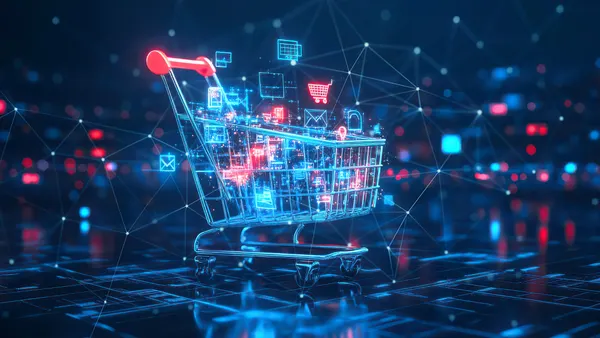Dive Brief:
- Adobe Tuesday opened its prototype “Store of the Future” in Las Vegas, which offers beacons, RFID tags, and a shopping bag that completes customers’ transactions.
- The store was built to display trends in brick-and-mortar stores inspired by online retailers, reports Fast Company, including tracking items with RFID tags, offering real-time inventory metrics, and collecting analytics of customers.
- One of the technologies Fast Company highlighted was the Smart Internet Connected Bags from tech startup Twyst, which take stock of any items customers put in them and charge a credit card as they exit.
Dive Insight:
Software giant Adobe has brought together a number of next-wave retail technologies under a single roof at a prototype store in Las Vegas. Demonstrating technologies such as RFID-enabled inventory control and tracking, beacons that detect customers and tailor their shopping experiences, and a smart shopping bag that completes checkout, the store is showing how brick-and-mortar retailers can build and use the kind of data that powers e-commerce.
While RFID technologies and beacons have been deployed in stores already, Twyst’s Smart Internet Connected Bags represent a new wrinkle. The bags immediately log what shoppers put inside them and relay that information to the store, offering an opportunity to upsell, delivering insights into buying patterns, and connecting with the cloud to help retarget across channels. The bags also offer a personalized concierge experience.
Brick-and-mortar stores are driving innovation in the so-called Internet of Things (IoT) in an effort to access the kind of data that comes naturally to e-commerce. Connecting physical locations (and everything inside them) to the cloud is likely the path forward for retailers looking to drive foot traffic, attract incremental sales, and sell across channels.













